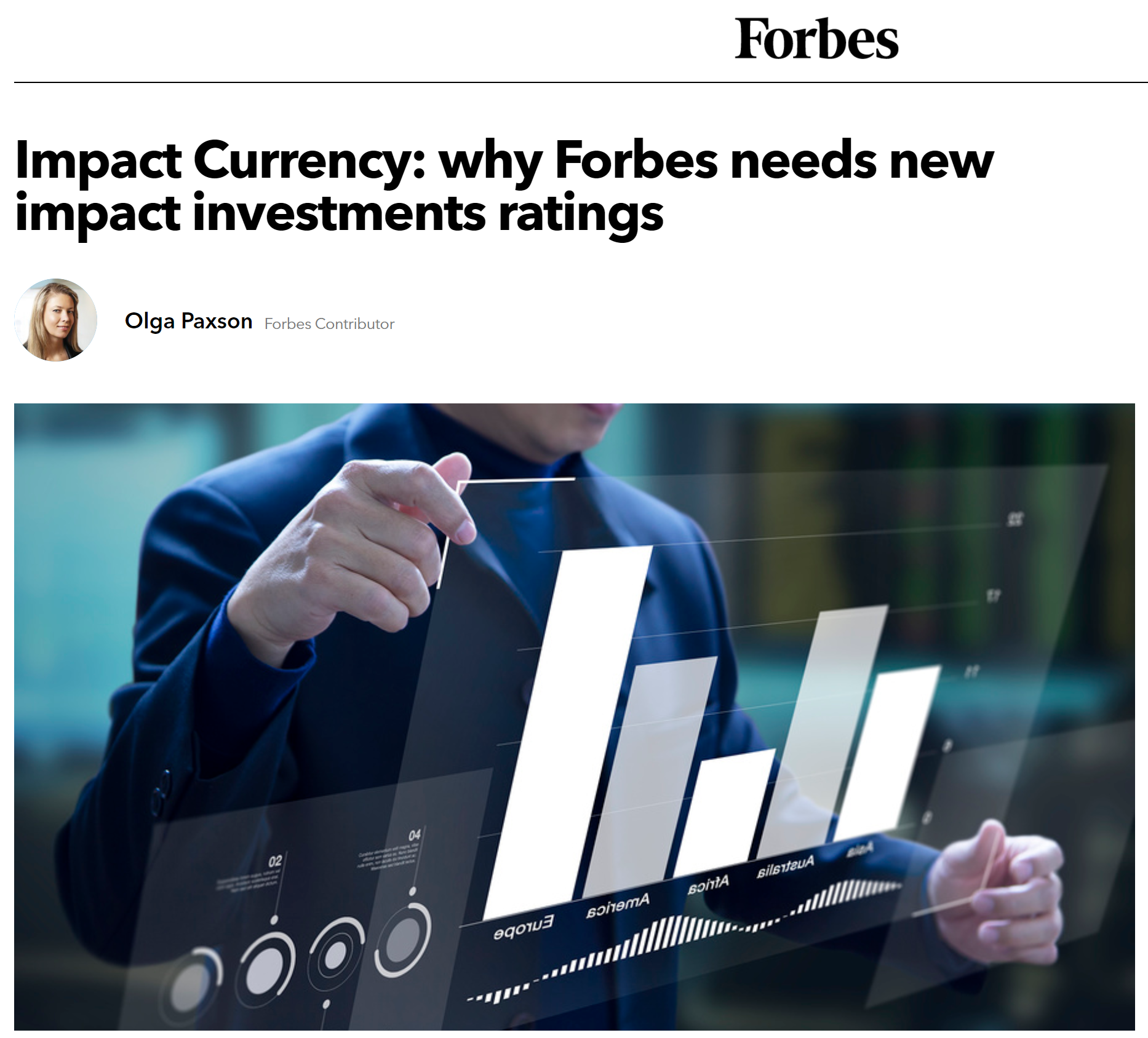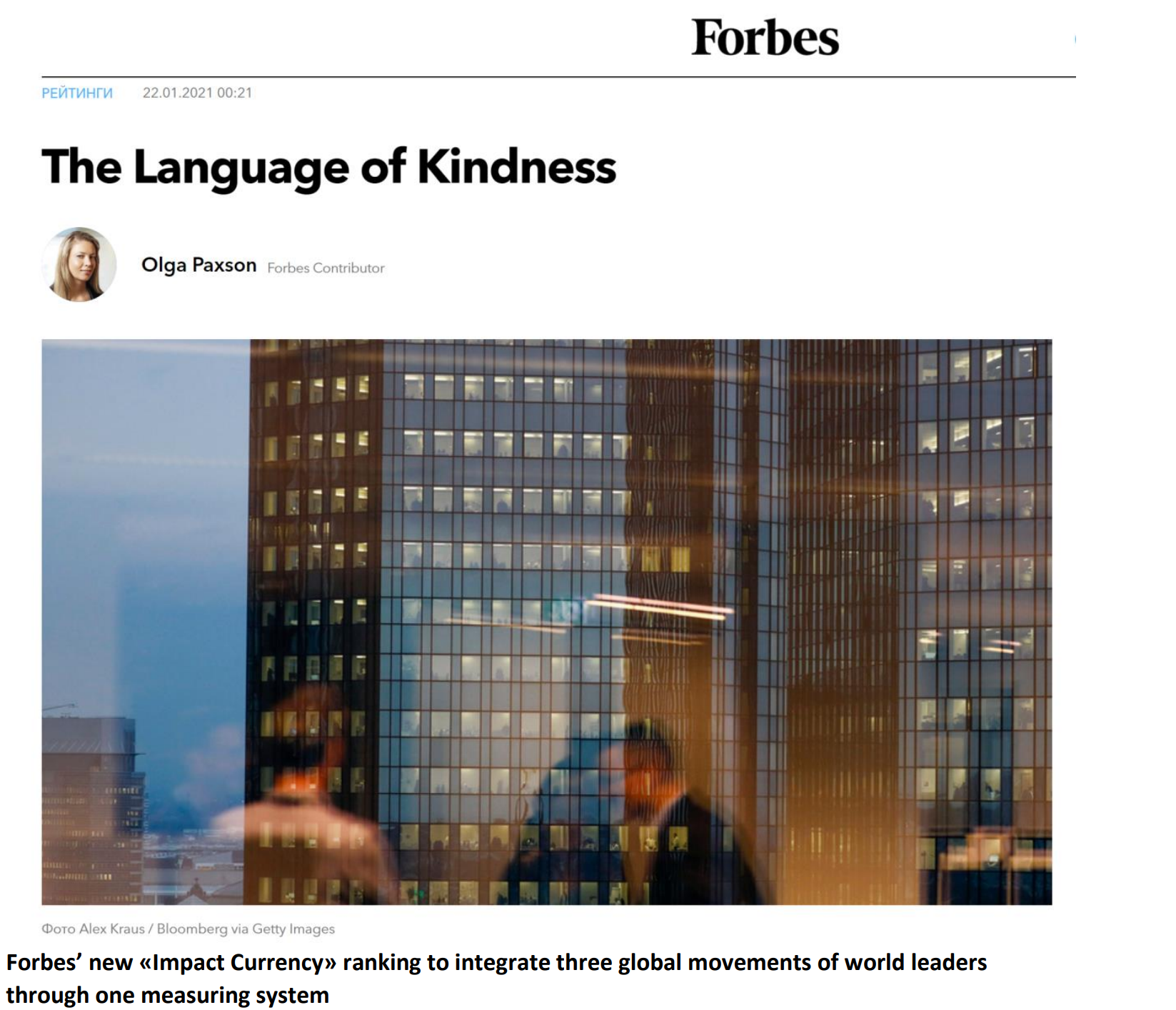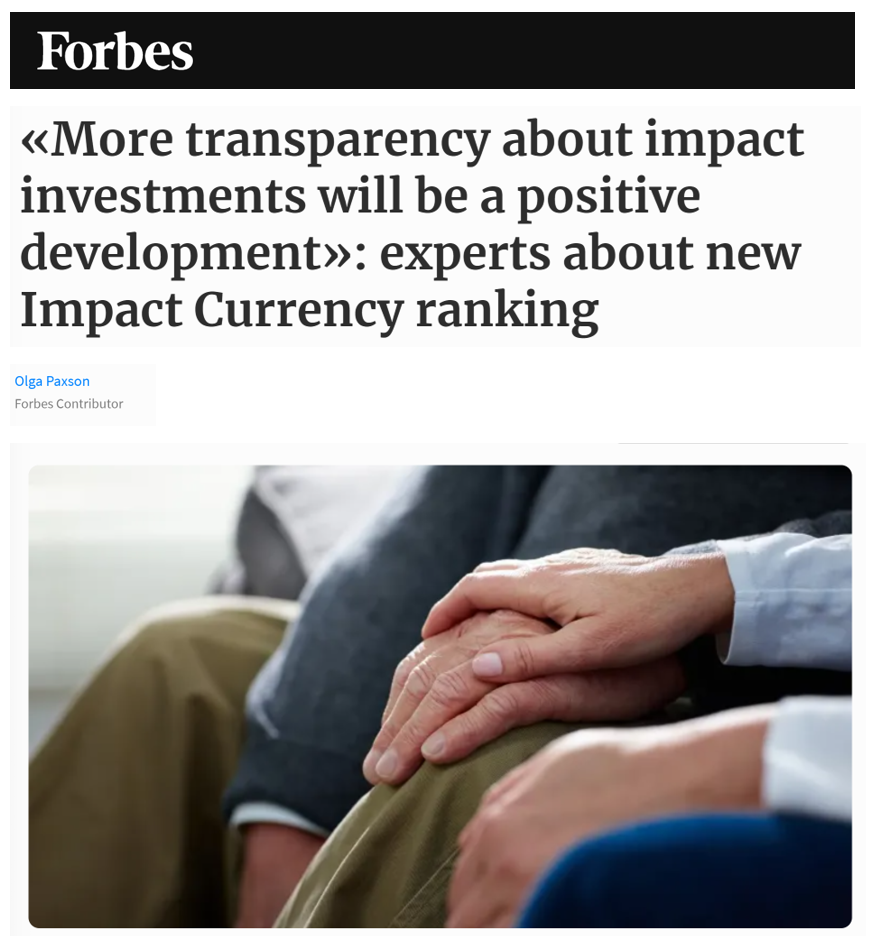
IMPACT CURRENCY
MOBILIZE FUNDS TO SAVE THE PLANET
We are creating incentives for capital to do good
How to incentivize dramatically more impact investing? By creating a new concept in dollars, the language that those with money understand best, to measure their contributions to all forms of good (“Impact Currency”), as part of the marquee Forbes billionaires ranking.
Money itself is generally viewed as a measure of success. But at Reaction, we believe that the world needs a completely different currency. Not just a number of zeros reflecting wealth, but rather money that measures the ability to improve the world, not take from it.
The methodology of adding up all forms of “good” into one Impact Currency number is unprecedented. Diverse and powerful minds from every continent contributed to its creation.
When the project started, Dr. Olga Paxson reached out to her fellow partners at Reaction, and within days, a Reaction working group was formed. Fourteen Stanford Executive Program alumni, Stanford Center for Social Innovation, Professors Jeff Pfeffer, Baba Shiv and Matt Abrahams, as well as Director of the Global Innovation for Impact Lab at the Stanford University Center on Philanthropy and Civil Society, Christian Seelos, contributed to the project.
For this initiative, contact:
Dr. Olga Paxson
Head of Reaction Think Tank
paxson@reaction.global
Reaction and Stanford Alumni Team for Impact Currency: Bilge Kagan Ozturk (Dubai), Rui Barros (Mozambique), Hassan Kadbi (Switzerland), Miguel Esbri (Panama), Mario Ferro (Japan), Algernon Callier (USA), Valery Vavilov (United Arab Emirates), Nuno Gonçalves (Portugal), Carlos Peredo (Spain), Edward Chuang (USA), Olga Paxson (USA), Dan Matthies (USA), Brian Fleming (UK) and Jose Zurstrassen (Belgium)
Directors of Center for Social Innovation at Stanford University Graduate School of Business, Bernadette Clavier and Neil Malhotra, summarized the project as follows: “The Impact Currency now has the potential to create new incentives for the rich to channel as much money as possible into public good.”
The pilot Impact Currency ranking was published in the September 2021 issue of Forbes, Russian edition. Denis Sverdlov, who won the ranking, is the founder of Arrival, a British electric vehicle company focused on buses and commercial vehicles. The ranking was featured on the cover of the magazine.
Denis Sverdlov, the founder and CEO of electric vehicle startup Arrival, ranked top on the list.
Now, Reaction is working on the next stages of the project – spreading the Impact Currency ranking to other publications, creating a ratings methodology for companies and using Impact Currency as an asset management tool.
Call to action:
Reach out to us if you would like to be part of the next Impact Currency initiatives! When reaching out, please indicate specific areas where you can help:
“I have connections with Bloomberg, Forbes, Sunday Times or Fortune magazine that may facilitate publishing Impact Currency ratings there.”
“I have the ability to fund the project.”
“I have expertise in creating rankings or indices.”
“I have high level connections with rating agencies or large asset managers to facilitate involving them in the project.“
“I have the following other expertise or connections that may be helpful [please list].”
“I want to [do research / participate in brainstorming / please list anything relevant].”
About the Author
Olga Paxson is Head of Reaction Think Tank. Previously she led a 15-year career as a top ranked partner at major law firms.
About Reaction
Reaction is about creating exponential change. We are a global community of entrepreneurs, investors and executives who share a vision for a world where innovation can meaningfully change more lives in less time. Why now? Because more innovations will be created in more countries and more industries over the next decade than in the previous 50 years. Many will offer the potential to solve global issues. But will fail to reach the markets they could have benefited most. Reaction was founded by a global team of Stanford alumni who united to solve this problem together. Our mission is to measurably improve one billion lives, within a decade, by scaling innovations that will change the world.






